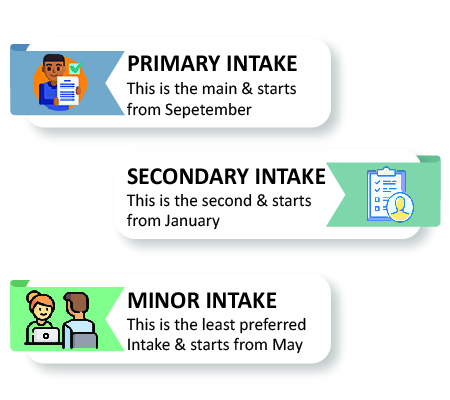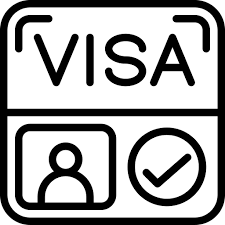Want to study in a multi-cultural, ambitious environment? If yes, Denmark is the best place for your higher studies. Academic excellence, student support, creativity, world-class faculty, innovative thinking and globally recognised qualifications - all under one umbrella. Sounds appealing! Isn’t it? It can be a wise decision if you study in Denmark. When you study at a top Danish University, rest assured, you are investing in your future with unlimited growth and potential.
The diversity in the Danish education system, as well as lifestyle, attracts millions of students to study there from all over the world. Denmark is well-known for its excellent academics, globally accredited degrees, and booming job market. The post-study work visa in Denmark is one of the things that attracts international students. It is also an amazing destination to explore and pursue higher studies for international students. Approximately 86% of people in Denmark can speak English. It means no language barrier for you. Top higher education institutions in Denmark offer a wide range of English-taught programmes.
The currency of Denmark is the Danish Krone (DKK), which is currently 13.49 INR. The capital city is Copenhagen. The average tuition fees for studying a full degree undergraduate or postgraduate, or even a doctoral-level programme in Denmark, are between DKK 45,000-120,000. Higher education in Denmark is tightly regulated to ensure the quality of education, training, development and research in all major fields of study. It is an amicable country that welcomes people from all corners of the world.

Capital
Copenhagen

Currency
Danish Krone

Int. Students
34,000

Salaries Range
DKK 450,000

Happiest Country
2nd

Capital Income
USD 68,454

Exams Required
IELTS

Average Tuition Fees
DKK 45K-120K P/Y

No. one University
University of Copenhagen
To study in Denmark, you need to choose one of the intakes in the 2 major intakes, which are the Autumn intake and Spring intake. The Autumn intake starts in September/October, which is the most popular intake for international students, and the Spring intake starts in February/March.

The higher education qualification in Denmark starts from an academy profession degree, a professional bachelor’s degree, a UG, a PG, and doctoral level degrees. The university-level education is mostly in English. You can study business, IT, health, social science, computer science, language, literature, and more, according to your choice and career goals.
You must meet the academic prerequisites to study a bachelor's or master's course in Denmark. Though the eligibility varies depending on the course and the University you choose. It is, therefore, important to check the eligibility before you choose a programme or university. Here are the basic academic requirements:








The average study cost in Denmark depends on the city you live in, the course you pursue and the university you choose. The average tuition fees for studying a full degree programme, either a bachelor’s or master’s programme in Denmark, are between DKK 45,000-120,000. Copenhagen and Aarhus are some of the most expensive cities in Denmark for international students, and other cities, like Aalborg and Odense, are cheaper.
| Type of Expense | Avg. Yearly Cost (DKK) |
|---|---|
| Room in shared apartment | 4470.00 |
| Studio apartment | 7450.00 |
| House with 3 or 4 bedrooms | 13410.00 |
| Students’ residence | 5215.00 |
| Homestay meals included | 5588.00 |
| Total | 36133 |
You are required to have a valid student visa if you want to study a UG or PG in Denmark. Typically, the government of Denmark offers visas for short and long stays for international students. This short-stay visa is known as a Schengen visa. The resident permit falls into the category of a long-stay visa. A Schengen visa allows you to stay between 90 and 180 days, while a residence permit is applicable for longer stays, allowing you to study, work and family reunification.
A Schengen visa is required for those who want to stay in Denmark between 90 and 180 days.
Type- Study
Cost of Visa - 671 DKK
Visa Expiry - 180 days
This resident visa category is applicable for students who want to study for longer than 180 days.
Type- Study
Cost of Visa - 1455 DKK
Visa Expiry - 365 days
This PhD student visa category is applicable for doctoral students who want to stay during the...
Type- Study
Cost of Visa - 2115 DKK
Visa Expiry - 3 years
To study in Denmark and process a visa, you are required to have some essential documents. You need to submit your visa application, including a letter of acceptance from one of the Universities in Denmark, proof of funds and visa charges, etc. You are often required to submit a health certificate as your fitness to fly to Denmark.






High-skilled professionals are mostly in demand in Denmark. Many sectors are growing exponentially in Denmark, particularly in business services, healthcare, information technology, and engineering. Furthermore, software development, cybersecurity, nursing and midwifery, healthcare management, IT project management, etc., are some of the fields that are also growing rapidly.
Part-time work opportunity
As an international student, you can work part-time in various sectors, such as hospitality, childcare, sales, language teaching, etc.. International students have restrictions on work. They can work 20 hours per week during term time.
Full-time work opportunity
A full-time work opportunity in Denmark is huge in various sectors. You can pursue full-time jobs after completing your studies. Sectors, like technology, finance, healthcare, and engineering, have more jobs than others.






Studying in Denmark is comparatively cheaper than studying in the UK, the USA or Australia for international students. You can complete your UG or a PG programme between DKK 45,000 and 160,000 per year.
You need academic transcripts, English or Danish language proficiency, a personal statement, a LOR, and a valid passport for admission to study in Denmark.
The University of Copenhagen is considered the number one University in Denmark, known for quality education, development and research.
No doubt, many universities in Denmark offer English-taught UG or PG programmes to international students. English-taught programmes are available at the University level.
A non-European student can work no more than 20 hours a week while studying in Denmark.